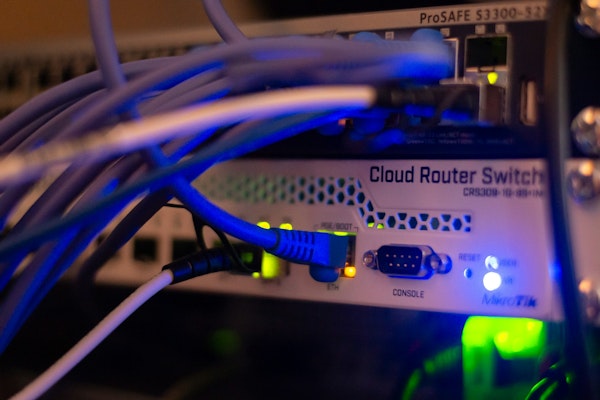
How Aerial Imagery and Machine Learning Are Reshaping Property Claims
Aerial imagery, supervised machine learning, and Gen AI are expanding underwriting and claims capabilities, but insurers face mounting pressure to validate data, manage uncertainty, and protect customer trust.
March 3
Catastrophe
Property
Risk Management
Technology

Gen Z Is Forcing Insurance Into a Real-Time Claims Era
Over one in four Gen Z policyholders avoid filing claims due to digital friction. Insurers face mounting pressure to modernize onboarding, verification, and settlement workflows.
March 2
Education & Training
Fraud
Insurance Industry
Risk Management
Technology

2026 Claims Insights: Carrier Strategies on Social Inflation, AI Fraud and Workforce Risk
New survey data shows carriers recalibrating underwriting, fraud detection and workforce strategy as social inflation, AI-generated fraud and catastrophe losses intensify.
March 2
Auto
Catastrophe
Fraud
Insurance Industry
Legislation & Regulation

Why Insurance Claims Systems Create Friction and How Design Can Fix It
A new report outlines how role confusion, product silos, and competing platform priorities create unnecessary friction across claims and service workflows.
February 25
Auto
Insurance Industry
Property
Risk Management
Technology

GEICO Class Action Targets Auto Policy Driver Discovery Practices
A Florida class action claims unauthorized drivers were added to policies, raising questions about third party data use and underwriting controls.
February 25
Auto
Insurance Industry
Litigation
Technology
Underwriting
Florida

Data Theft Overtakes Encryption in 2025 Cyber Claims, Resilience Reports
Resilience reports a sharp rise in extortion-only attacks and AI-driven phishing, reshaping cyber insurance severity and coverage strategy.
February 25
Insurance Industry
Legislation & Regulation
Litigation
Risk Management
Technology

AI-Powered Hackers Breach 600 Firewalls in Global Cyber Campaign, Amazon Reports
Security report warns of financially motivated intrusions exploiting weak credentials and single-factor authentication, raising ransomware risks for global organizations.
February 25
Insurance Industry
Risk Management
Technology

Microplastics Claims Face Evidentiary Scrutiny as Detection Methods Tighten
Revised lab standards and causation challenges are reshaping how insurers evaluate emerging toxic tort exposure tied to microplastics.
February 25
Insurance Industry
Liability
Litigation
Risk Management
Technology

BMW Recalls 58,713 Vehicles Over Damaged AC Wiring Harness, NHTSA Says
NHTSA says damaged air conditioning wiring harnesses in select BMW models could cause a short circuit, prompting a nationwide recall.
February 25
Auto
Risk Management
Technology
Underwriting

Why Paper Checks Still Dominate Insurance Claims Payments
Paper checks still dominate insurance payments, but fraud data, workflow drag, and customer expectations are pushing carriers toward digital alternatives.
February 19
Auto
Fraud
Insurance Industry
Property
Risk Management

Vermont Expands Virtual Claims Adjusting Rules to All Insurance Lines, Mandates In-Person Inspections on Request
Revised Bulletin 206 allows virtual claims handling across all lines but requires insurers to offer in-person inspections and reinforces standards for total loss valuations.
February 19
Auto
Legislation & Regulation
Property
Technology
Vermont

Travelers Rolls Out Agentic AI Voice for Auto Claims Intake
New AI Claim Assistant handles auto damage claim calls, guides FNOL and shifts adjusters toward resolution-focused work.
February 19
Auto
Education & Training
Insurance Industry
Technology

78% of Insurers Plan Higher Tech Budgets in 2026, Survey Finds
Survey data shows carriers and brokers ramping up AI, cybersecurity and digital platforms as claims, fraud and catastrophe pressures intensify.
February 19
Catastrophe
Fraud
Insurance Industry
Litigation
Risk Management

Zelle, Venmo and Cash App Fraud Losses Climb as Companies Reassess Controls
Losses tied to Venmo, Zelle and Cash App are climbing, pushing underwriters and claims teams to scrutinize controls, coverage limits and internal fraud exposure.
February 19
Fraud
Insurance Industry
Litigation
Risk Management
Technology

North American Insurers Face Structural Claims Cost Shift in 2026
Gallagher Bassett’s 2026 Carrier Perspective report finds social inflation, medical costs, catastrophe losses and AI-driven fraud are compounding severity and workforce pressure for carriers.
February 17
Auto
Catastrophe
Fraud
Insurance Industry
Litigation




